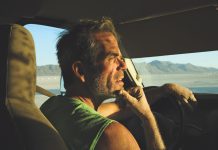Mutual Responsibility
“You cannot escape the responsibility of tomorrow by evading it today.”
Abraham Lincoln.

Last week a local friend called with a concern about potential energy drink abuse by his daughter. It wasn’t the brand that I’m affiliated with but it led to a productive conversation that I thought was worth reflecting on further.
Who is responsible for teaching kids to behave responsibly?
Energy drinks take a lot of heat for irresponsible behaviors. There are concerns about mixing energy drinks and alcohol and how the combination affects the drinker’s awareness of impairment. Others are concerned about caffeine use and abuse by young people as well as over the high sugar and calorie content in some brands.
The call that I received wasn’t accusing, but raising questions about what’s in the cans and what different ingredients might do to a child.
My friend’s daughter is a freshman at Laguna Beach High School and in the same class as my younger son. She was walking around the house, stumbling and confused, and the cause was attributed to drinking three cans of a European energy drink. She’s 80 pounds.
The father had called me because he was concerned about the ingredients in an “energy drink” and if it might have caused the symptoms he observed. He wasn’t blaming me or the category, per se; he was wondering how to educate kids better.
Obviously, I appreciate parents who are concerned about their children on a lot of levels. We talked about the amount of caffeine in a small can — 80 mg in that case — and what 240 mg of caffeine might do to a young girl. It normally would not be considered dangerous, but there might be behavioral changes.
The bigger question he asked was, “Is there a way to educate kids about caffeine and energy drinks so that they can use these more responsibly?” I thought it was a good question from a good parent.
Realistically, energy drinks really are not significantly higher in caffeine than coffee, aspirin tablets, dark chocolate or some soft drinks. As a simple example, a small drip coffee from a popular coffee chain has twice the caffeine of an energy drink.
Our conversation led to a discussion about educating kids about things they consume in general and taking responsibility for their actions.
Schools, as an example, have made villains out of soda and energy drinks, but it’s very common to see high school kids walking onto campus with large cups of coffee.
More concerning to me are real issues with obesity. Several years ago, I was sitting at a Department of Health and Human Services press conference with then-Health Secretary Tommy Thompson and one of his ambassadors, former football great Lynn Swan. Thompson said, “Obesity is now the number one form of preventable death, and high fructose corn syrup is the new cigarette.”
Schools have ejected soda and energy drinks, but they allow coffee and sell things like apple and grape juices, products with little-to-no nutritional value and more sugar than soda, to kids.
Waiting for schools to properly educate our kids about nutrition is like assuming kids will learn the moral responsibilities associated with being sexually active simply by sitting through health class. I’m happy the schools offer a sex education curriculum, but responsibility needs to be taught at home.
If my son breaks his arm skateboarding or snowboarding, I don’t call the owner of the companies that make those products. I teach my kids how to manage risks better (and get them immediate medical attention). If a person drinks too much alcohol and does something foolish, we don’t blame the drink. We blame the drinker. AA isn’t about prohibition.
Interestingly, towards the end of our conversation, my friend asked if I’d help provide health education at schools for students about energy drinks and other products kids drink. That question gave me pause.
While I don’t feel directly responsible for teaching the children of the world about nutrition, it made sense that an owner of a company who sells a lot of drinks to families would get involved in helping kids get the facts about how daily nutrition impacts their bodies, behavior and lives. I do believe in shared responsibility.
David Vanderveen is a Laguna Beach resident, husband, father and energy drink entrepreneur. His email is [email protected].





Mutual Responsibility
Yes, I am the dad who called David to get the scoop on energy drinks. Who better to ask than a local dad, energy drink entrepreneur, and socially conscious all around good guy? As he stated, I was more concerned about the kids in our community and what they consume rather than laying blame on the companies involved in their business.
First I want to clarify that it was actually a friend of my child’s who had the incident that brought the risks to my attention, not my daughter as indicated in the article. But my concern is the same. When kids come over to my house I take on the responsibility for them while they are under my roof. Fortunately we have an open house for our kid’s friends, which also means an open dialog with them.
I have learned many things from these young adults. Like how many of them do not feel they have the opportunity to speak freely with their parents, and sometimes even amongst their peers. Yes, it’s the challenge all of us as parents have, balancing our own lives and that of our children’s wellbeing. How many times have we approached a topic with our teens rolling their eyes at us all knowing?
We rely on many inputs for raising our children. We have a great community of parents and school resources – both curriculum based and presentations for parents. Yet there is always the never settled question of how to truly influence our kid’s decisions when we are not with them. Decisions that will keep them from harm, help them be better people, make them all the wiser.
My wife put it this way years ago when we were working on HIV/AIDS prevention strategies for young adults back in the nineties…”how do you impart wisdom before experience?” Great question. One of the things we found most beneficial was peer to peer education. At least, hopefully they will listen to each other.
But it still comes down to getting them the information in the first place, in this case, about what you consume and put in your body. That even “over the counter” products such as coffee drinks, energy drinks and pills can put you at risk for a variety of challenges.
It also comes down to how we as parents show up to set examples, provide insight and participate in a shared and mutual responsibility in our community to make sure we are doing our best to raise our kids in the village we call home, Laguna.
As David has offered his services and staff to present information on this topic of consumption, I offer the Prevention Symbol (iPrevent.com) as a tool to help focus on the risks and acts of prevention we all face we our world.
Prevention…how do you draw the line?